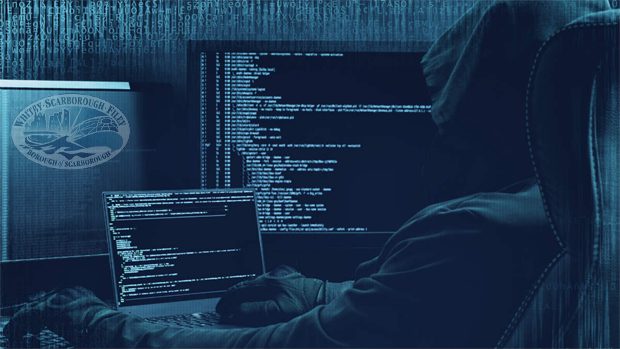Surveillance & InfoWar Ops by Public Bodies, inc. SBC
This is the sixth article on the subject of undercover and information warfare operations in Yorkshire.
- The first covered the influence of the military on armed and undercover police operations and can be read here: Undercover and InfoWar Operations in Yorkshire 1
- The second covered the influence of the military on police information warfare operations and can be read here: Undercover and InfoWar Operations in Yorkshire 2
- The third covered information warfare operations by Local Government Organisations and can be read here: Undercover and InfoWar Operations in Yorkshire 3
- The fourth covered information warfare operations by public bodies, in this case North Yorkshire Police (NYP) and the Office of Police and Crime Commissioner for North Yorkshire (OPCCNY) and can be read here: Undercover and InfoWar Operations in Yorkshire 4
- The fifth covered information warfare operations by Special Branch and can be read here: Undercover and InfoWar Operations in Yorkshire 5
Following on from the recent furore over Officers of Scarborough Borough Council (SBC) intercepting Councillors’ emails, this article covers the NYE’s investigation into Surveillance, Undercover and associated Information Warfare Operations by Councils and other Public Bodies, with specific reference to Scarborough Borough Council .
Background and Definition of Terms
Background
For reasons of consistency, some repetition of the definition of terms from article 2 is necessary. Information Warfare/Operations was until recently a military term and it is defined below:
- Information Warfare [2] is a United States military concept involving the collection [2] of tactical information, assurance [2] that one’s own information is valid, spreading of propaganda [2] or disinformation [2] to demoralize [2] or manipulate [2] the enemy and the public, undermining the quality of opposing force information and denial of information-collection opportunities to opposing forces. Information warfare is closely linked to psychological warfare[2]. The United States military focus tends to favor technology, and hence tends to extend into the realms of electronic warfare[2], cyberwarfare[2], information assurance and computer network operations[2], attack and defense. Most of the rest of the world use the much broader term of Information Operations[2] which has combined the making use of technology, as well as focusing on the more human-related aspects of information use.
- Media Operations[8]. Information Operations and Media Manipulation are often incorporated into Media Operations. The British Army now has a Media Operations Group which is seen as critical to the successful outcome of any mission on the modern battlefield. It emphasises the importance of briefing journalists “on what is happening with the military campaign ….. and are briefed to contextualise events” (i.e. influencing the media by putting the military’s view of events to journalists, so it will be provided to the public by the media. Thereby influencing them positively). (My emphasis in bold). Perhaps the most successful example of British military media operations to date was the manipulation of the media during the 1982 Falklands conflict[1].
- Media manipulation [2] is a series of related techniques in which an image or argument that favors their particular interest of the organisation is promulgated. Media manipulation tactics may include the use of outright deception and often involves the suppression of information [2] or points of view, by crowding them out, by inducing other people or groups of people to stop listening to certain arguments, or by simply diverting attention elsewhere. In military terms it can be utilised as part of propaganda or psychological warfare.
- Black Operations [2] are covert operations [2] by a government, a government agency, or a military organization. This can include activities by private companies or groups. Key features of black operations are that they are secret and not attributable to the organization carrying it out. The main difference between a black operation and one that is merely secret is that a black operation involves a significant degree of deception, to conceal who is behind it or to make it appear that some other entity is responsible.
This has developed into military media operations. Information operations and media operations are not passive concepts. They are proactive and aggressive. They can include information suppression, media manipulation, media suppression, psychological operations aimed at disaffecting enemy morale (the Home Office de-radicalisation [4] program is an example of demoralising potential terrorists to dissuade them from participating in terrorism) disinformation, legal action, detention, hacking, virus attacks and direct action. The airstrikes in Afghanistan that killed the IS Head of Media and destroyed an internet control centre, and a radio station, are examples of media suppression by direct action. BBC report here [4] and report here [4]).
Throughout the articles, references to the above Information Warfare Operations terms are in brackets and highlighted in Bold throughout this article.
Examples of misuse of surveillance powers by other Councils
The Regulation of Investigatory Powers Act (RIPA) permits local authorities to conduct surveillance, including the use of Covert Human Intelligence Sources. I understand that SBC has used these powers in the past, but was unable to identify any further information on who was targeted or what form the surveillance took. However, the Council has recently confirmed it has used them to monitor email traffic. (See below).
The Council’s procedures for initiating surveillance are here [10].
To illustrate the issues potentially raised by SBC’s surveillance powers, please consider some examples of other Councils and public bodies that have abused these extensive powers to conduct operations against people that were not involved in crime here [1] and here [3].
Former Redcar & Cleveland Borough Councillor David Williams has written in the NYE of his own experience of emails disappearing from his Council e mail account. Article here.
Misuse of surveillance powers by another public body (Cleveland Police)
The recent revelations of misconduct by Cleveland Police are a classic example of a public body abusing its surveillance powers, to suppress legitimate criticism of it and prevent embarrassing disclosures of racism within the force by its employees to journalists.
The full story can be read in these excellent articles by Julia Breen [7] and Graeme Hetherington [7]. Briefly Cleveland Police used the Regulation of Investigatory Powers Act to illegally monitor the telephones of two former Police Officers, their solicitor and two journalists (Surveillance). It alleged they had committed a criminal offence by leaking information to the press [4] (Disinformation to justify information suppression). The two police officers, Mark Dias and Steve Matthews claim they were targeted for exposing allegations of institutional racism in Cleveland Police over the shocking case of retired Police Officer Sultan Alam [4].
His Honour Sir Michael Burton from the United Kingdom Investigatory Powers Tribunal found that using legislation normally used in terrorist investigations, was not proportionate in their case. There was no proof of criminality and no evidence of Cleveland Police taking any legal advice to support its actions. The Officers’ legal team observed that the “force’s casual disregard for the legal framework beggared belief’ [4].
In response, the Chief Constable of Cleveland Police (former North Yorkshire Police Assistant Chief Constable Iain Spittal [9]) and Police and Crime Commissioner Barry Coppinger announced they were disbanding the Cleveland Police Professional Standards Department (PSD) and would conduct a full review of how to perform these functions going forward.

Chief Constable Iain Spittal
In my view, the most disturbing aspect of this case is that the Cleveland Police Professional Standards Department – the organisation responsible for upholding the highest standards, ensuring the truth comes out and combatting corruption – itself broke the law. Worse, it abused police powers, surveillanced journalists and conducted a campaign of harassment against innocent whistle-blowing policemen for speaking out against misconduct.
This scandal has become so serious that there have been calls for Cleveland Police to be disbanded and merged into another force, or split between North Yorkshire Police and Durham Police. Gazette article here. I can only remember one similar situation in 1989, when Geoffrey Dear, the Chief Constable of the West Midlands Police, disbanded the Serious Crimes Squad [4] over allegations of institutionalised corruption [11]. I am very sadly reminded of the words of Lord Laird of Artigarvan in the House of Lords (in which he was supported by the Lord Maginnis of Drumglass), referring generally to the problem of Police corruption:
“Corruption amongst police forces the length of this country…Systemic corruption from a section of the police at all levels in the operation of all types of crime and involving officers from professional standards.”
Just as well that on this occasion there were courageous journalists from the Northern Echo who were able to pursue the story and expose this scandal – thereby ensuring that the Cleveland Police Professional Standards Department would be reformed. Clearly this outcome was in the public interest and another shining example of a public body being held to account by whistle-blowers, journalists and a free press. No doubt also the reason some public bodies, including SBC, respond aggressively to them.
SBC Information Denial Operations against NYE Journalists
I submitted a Freedom of Information Request as part of the research into the UIWOY series of articles, to identify what – if any – covert or surveillance operations SBC had initiated. The response in August 2017 was a classic example of information warfare SBC-style. It was essentially “We are not going to tell you”. The following are the salient sections.
The Council relies on section 14(1) of the FOIA which states:
Section 1(1) does not oblige a public authority to comply with a request for information if the request is vexatious.
It is the Council’s position that this request is vexatious having taken into account context, in particular:
- your own request behaviour and history; (Disinformation to justify information suppression)
- the request behaviour and history of those who are part of the same pressure group; (Disinformation to justify information suppression)
- your continuing attacks upon Members and Officers of the Council through use of your group website and social media; (Disinformation to justify information suppression)
- the continuing and collective attacks by those who are part of the same pressure group upon Members and Officers of the Council through use of your group website and social media; (Disinformation to justify information suppression)
- your group’s collective stated aim to cause nuisance and disruption to the Council.” (Disinformation to justify information suppression)
Yours sincerely
Freedom of Information
Scarborough Borough Council
This came as a bit of a surprise, because I don’t belong to any pressure groups. Further analysis revealed that SBC was in fact referring to the NYE!
There are a number of problems with SBC’s arbitrary definition of the NYE as a pressure group to justify withholding information from all those who write for it:
- Pressure Groups are an entirely lawful form of organisation formed by citizens to address one specific issue, at local or national level. There is no prohibition against pressure groups in the Freedom of Information legislation. The definition of a Pressure Group [2] is: “Advocacy groups (also known as pressure groups, lobby groups, campaign groups, interest groups, or special interest groups) use various forms of advocacy[in order to influence public opinion and/or policy. They have played and continue to play an important part in the development of political and social systems. Groups vary considerably in size, influence, and motive; some have wide-ranging long term social purposes, while others are focused on and are a response to an immediate issue or concern. Motives for action may be based on a shared political, religious, moral, health or commercial position. Groups use varied methods to try to achieve their aims including lobbying, media campaigns, publicity stunts, polls, research, and policy briefings. Some groups are supported or backed by powerful business or political interests and exert considerable influence on the political process, while others have few or no such resources.“ Whilst I concede that some organisations that could be described as pressure groups are proscribed and this would justify SBC refusing to respond to their FOI requests, I have checked the List of Proscribed Organisations [12] and the NYE is not on it.
- The NYE is not a “pressure group”. It is a local internet news magazine that covers a wide range of issues including news, crime and politics across several local authorities in North Yorkshire and beyond. Many Councillors and local citizens use it as a vehicle to publish their views on a wide range of local issues. In no way can it be described as a “pressure group”. Private Eye also exposes misconduct locally and nationally and because of the similarity of the NYE’s role locally, has covered many of our stories on Scarborough Borough Council. However, no-one would ever dream of calling Private Eye a “pressure group”
- I have not submitted FOI requests to SBC for some time, so my FOI history is innocuous.
- I am not on social media and cannot therefore have attacked anyone on it.
- Whilst I have criticised some Councillors and one Officer of Scarborough Council (all public figures) in my capacity as a citizen journalist and member of the NUJ. So have Private Eye and the Scarborough Evening News. This is a lawful act. In the 1993 case of Derbyshire County Council v Times Newspapers, the Law Lords ruled that it was vital that the public were free to criticise public bodies: “It is of the highest public importance that a democratically elected governmental body, or indeed any governmental body, should be open to uninhibited public criticism.”
- I am a member of the NUJ and abide by the NUJ Code of Conduct and the NYE allows a right of reply to anyone who feels aggrieved about anything that has been published.
- The NYE has no collective stated aim to cause “nuisance and disruption” to SBC. The NYE’s stated objective from its web-site home page is: “The North Yorks Enquirer is an internet news magazine covering local, regional and some national news. It provides a forum for citizen journalists working in the public interest to expose wasteful spending, malpractice and corruption in authorities around North Yorkshire and beyond”. Public bodies are under an obligation to act openly, to act for the public benefit and to submit to scrutiny by journalists and the public alike. So the NYE’s objectives are entirely lawful and SBC has a duty to assist it.
- A number of opposition Councillors write for the NYE, using it as a platform to publish their views. Are they to be defined as vexatious and denied any right to information from the Council?
I therefore think it fair to conclude that SBC’s arbitrary definition of the NYE as a “pressure group” and the rest of the reasoning it puts forward has no basis in fact. It is simply a subterfuge to a) justify withholding information that the public is entitled to have and b) prevent lawful scrutiny by a free press.
This is particularly concerning because it potentially allows SBC officers to define anyone who exposes wasteful spending or misconduct by Councillors or Council Officers as having aimed to cause it “nuisance and disruption” and deem it vexatious – precisely the arrogant and dismissive attitude it displayed to brave SBC whistle-blower Ben Marriott. NYE coverage here.
I can’t tell who made this bizarre determination, because the email was issued anonymously. Again, deeply concerning because it allows the Council Officer who made this perverse determination to do so without being held accountable for his or her actions.
The FOI response then goes on to allege harassment by the NYE’s contributors of “the Council’s staff and members”. Which I deny. The threshold for an allegation of criminal harassment to be made is anything that causes the alleged victim alarm or distress. This threshold is so low, that just about any act can be sufficient to give rise to an allegation of a criminal offence – thereby justifying the initiation of surveillance and/or allegations of civil or criminal wrongdoing. (Disinformation to justify information suppression).
Essentially, this empowers Councils to initiate surveillance or threats of legal action on the flimsiest of pretexts. An example of this was SBC’s failed attempt to close down Real Whitby [NYE’s predecessor] and prosecute all of its citizen journalists for harassment in 2013 – allegations they were subsequently unable to substantiate. BBC report here [4].
I concluded that if the answer to my question was that SBC had not initiated any covert or surveillance operations, it would have answered “None” – the implication being that it had run covert or surveillance operations and may have a few that were still on-going. Little could I have known….
It therefore came as no surprise when Council by Councillor Tony Randerson and Councillor Janet Jefferson very properly and courageously revealed, in Full Council on the 6th of November 2017, that Council Officers have been intercepting Councillors’ emails (Surveillance). Video-clip of the Council meeting below:
No wonder they wouldn’t answer my FOI request!
Covert Surveillance of Councillors and Journalists by SBC.
Although Mr Kitson may possibly be correct that the Council has this power and this is disclosed openly in its policies, having a power and then using it are two very different things. No Councillor knew that Council Officers had started routinely monitoring emails to Councillors. Nor was Councillor Nock (Portfolio Holder for IT) informed (Covert surveillance). They should all have been informed that such a serious and intrusive act had been applied to them and were not. The measure was applied covertly.
Scarborough Borough Council has to undergo an inspection every three years from the Office of the Surveillance Commissioner. The last inspection was undertaken by Deputy Surveillance Commissioner His Honour Judge Norman Jones QC in June 2015. It was very positive and can be read here [10]. It does not mention that Council Officers were routinely reading and withholding emails from Councillors without their knowledge or consent. Mr Kitson is currently refusing to comment on whether this information was made available to His Honour Judge Jones QC.
Mr Kitson is also refusing to comment on whether my emails to Councillors are being intercepted, what constitutes “abusive content”, what constitutes “other inappropriate content”, who decides when surveillance should be initiated and who authorised it.
According to NYE contributor and former SBC Councillor Mike Ward, Councillors have been under covert surveillance for at least four years. His comments are here. Incredibly, he reveals that:
“A complaint re the interception of emails was first raised in 2013 when I was Independent SBC Councillor for the Eskdale Ward. At the time, I was assured by Lisa Dixon, David Kitson et al that it was not true.”
Contrary to Mr Kitson’s assurances in the above video clip, this power was not just used to protect staff and Councillors. According to former Councillor Mike Ward, it was used to covertly gather evidence to justify raising a standards complaint against him (Covert surveillance for the purpose of intelligence gathering). This could have led to him being limited as a Councillor.
Mike Ward alleges the cause of this covert surveillance appears to be that he corresponded with NYE journalist Nigel Ward. (Information suppression for the purpose of media suppression). In principle, the same policy pursued by Cleveland Police, as outlined above, which was castigated by the Information Commissioner.
The potential for abuse of the Council’s surveillance powers for political purposes
The Conservatives have been the ruling party in Scarborough for many years and this position of dominance gives them control over Council funds and manpower, and the ability to set policy. The then leader of Scarborough Conservatives Councillor Tom Fox stated openly in Council that under Conservative control, SBC follows an aggressive policy of “threat or retaliation” (media suppression by legal action) when dealing with media criticism from the NYE.
Holding public bodies like Conservative-led SBC to account is a key responsibility of the media and opposition Councillors. Impeding the free flow of information to journalists through FOI requests prevents this. Opposition Councillors use the NYE as a platform to publish their views, which is contrary to the best interests of the ruling party and Council Officers, but in the public interest.
SBC’s surveillance powers are open to abuse for party political purposes, or to serve the self-interest of its Officers and are not properly controlled or democratically accountable. The concern must be that Council Officers did not reveal that they were intercepting Councillors emails, because they knew some Councillors would object.
I know of no other Council that adopts this policy, which has brought the Borough into disrepute nationally and forced some Councillors to undertake electronic countermeasures by using their private emails to prevent interception by the IT Department.

Councillors are intelligent, robust and articulate individuals. They are all grown-up and do not need Council Officers to protect them by vetting their emails. The policy of interception of Councillors emails to prevent contact with journalists and perversely defining local internet journalists as “vexatious” by Council Officers is undemocratic and should stop.
Sources are accredited in brackets as follows:
[1] Guardian article. [2] Wikipedia article. [3] Daily Mail article. [4] BBC article or broadcast. [5] Forces TV broadcast. [6] Daily Telegraph article. [7] Northern Echo article. [8] Ministry of Defence. [9] Cleveland Police. [10] Scarborough Borough Council [11] Birmingham Mail [12] Home Office [13] Undercover by Rob Evans and Paul Lewis [14] Metropolitan Police [15] North Yorkshire Police [16] North East Counter Terrorism Unit [17] Independent article


























Comments are closed.